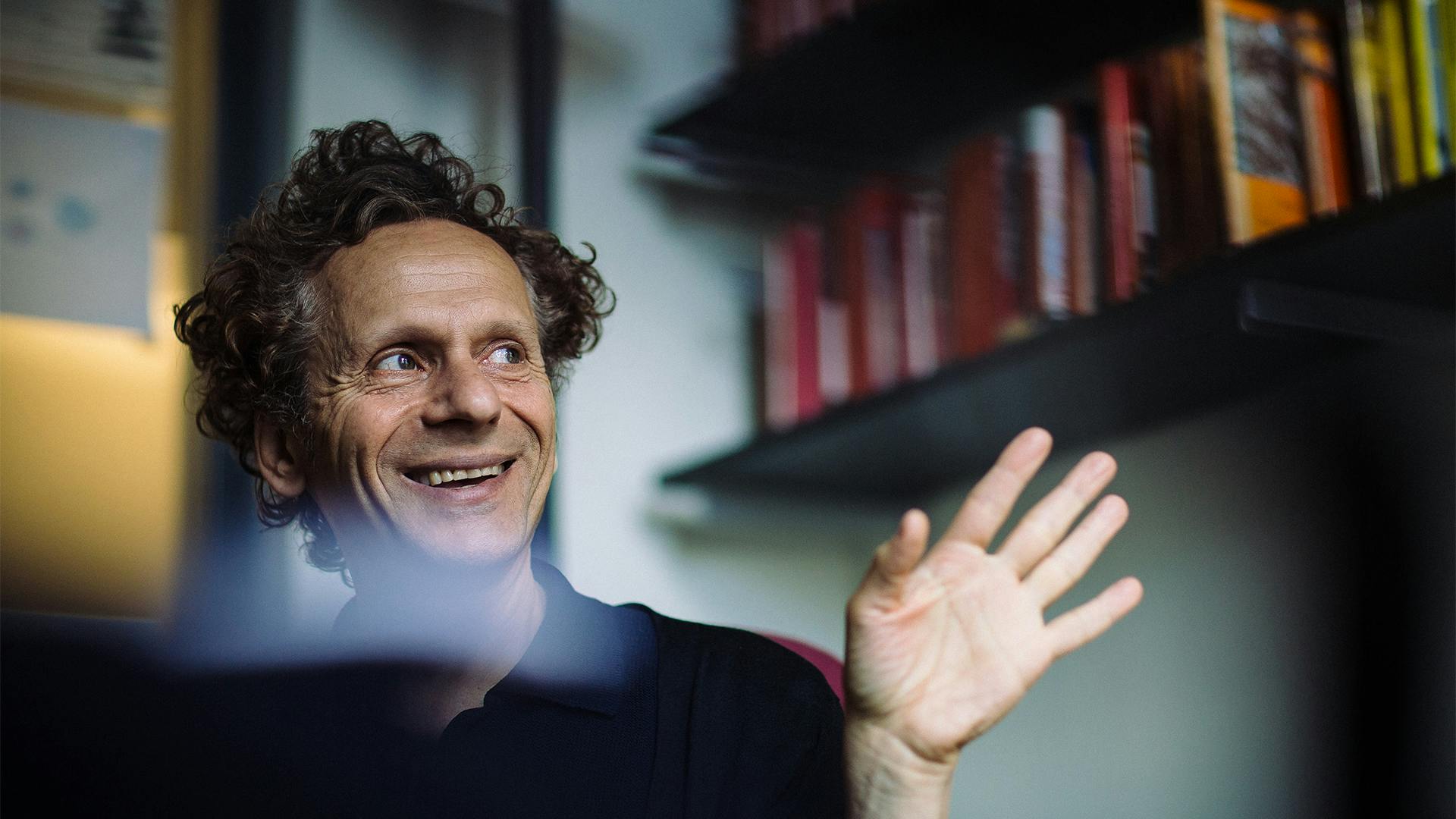
In his office at The New School for Social Research (NSSR), Professor Hugh Raffles surrounds himself with a chromatic spectrum of imaginative research: Shelves stretch around the room, laden with books organized by
color. The space reflects an artistic sensibility that is interwoven throughout Raffles’ approach to scholarship — from his own anthropological research to his leadership of the university’sGraduate Institute for Design, Ethnography,
and Social Thought (GIDEST).
Artists, explains Raffles, are often more comfortable than academics when it comes to raising open-ended questions and delving into ambiguity. While academics are trained to make arguments and find solutions to problems, artists do not consider finding
answers their main concern. Raffles argues that art poses conceptual questions for viewers to explore. In the resulting “thought space” — as Raffles calls it — powerful discourse is born and flourishes. Though he does not refer to himself as an artist,
Raffles says that the proposition of creating an open space where ideas can transmute and intermingle informs his approach to scholarship.
In his work, Raffles tries to create opportunities to think about or experience new ideas concerning relationships between humans, animals, and even inanimate objects.He sees this process as “part of that project of creating conditions for people to see
something in a way they might not have before.” Raffles explains that he enjoys meditating on the smallest of objects — such as insects or stones — because they require close attention from their beholder. Those who study smaller things, he says,
often develop the ability to look closely. In a world where most prefer to react rather than reflect, this work is designed to foster a much-needed mindfulness and a contemplative kind of patience.
One of Raffles’ primary projects at NSSR over the past three years has been the creation of GIDEST. As founding director, Raffles began by developing the institute’s broad mission to fuel creative thought and experience. “We’ve really emphasized that
it is an experimental space,” he says. Supported by a multiyear grant from the Andrew W. Mellon Foundation, GIDEST annually hosts ten fellows (five faculty members and five doctoral students) and one artist-in-residence. Together this group engages
in rigorous cross-divisional research at The New School, working to reimagine the kinds of questions that scholars can ask and expanding their means of disseminating knowledge. Since its founding, the institute has evolved to produce projects and
programs that couple the creative process of art with the rigor of scientific thinking.

Most important, GIDEST challenges the academy’s traditional disciplinary boundaries, encouraging scholars and artists alike to be bold in their inquiry. “Everyone is so professionalized these days,” says Raffles, who suggests that a single-minded focus
on outcomes-based research can lead to rigidity and conservatism. Scholars are often trained to be defensive and to safeguard against chinks in their arguments. But intellectual inquiry thrives when researchers worry less about how their ideas will
be received. “There’s so much creative research that people can do, but often they feel that they’ll be judged critically and so pull back,” says Raffles. To counteract this fear, GIDEST has been designed to foster experimental approaches to research
questions, allowing for an uncommonly open approach to scholarship.
With GIDEST, Raffles promotes a robust practice of addressing big and difficult questions through collaborative approaches that draw on the institute’s fellows and intellectual communities beyond the university. GIDEST holds regular public seminars that
feature a range of creative speakers and that lead to ongoing discussions. Raffles says that the seminars create “a positive pressure to help people with different approaches figure out how to talk to each other.” Those conversations, Raffles hopes,
will lead the way to a richer creative intellectual culture at NSSR, at The New School as a whole, and beyond.
By breaking barriers and fostering creative inquiry, GIDEST is a force of new collaborative research. Be a Force of New.